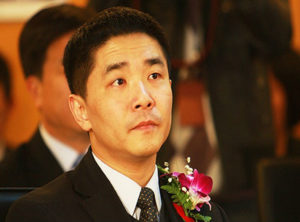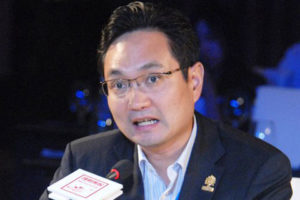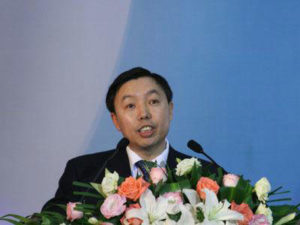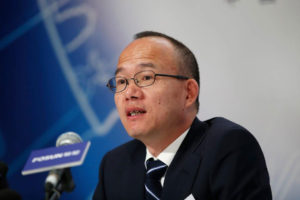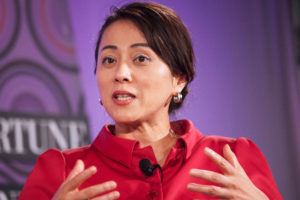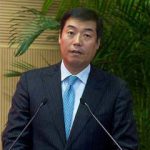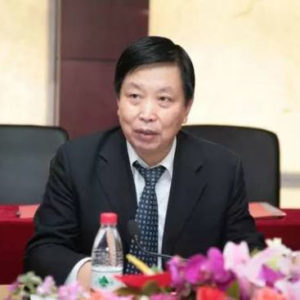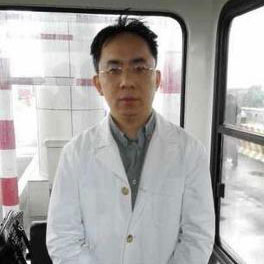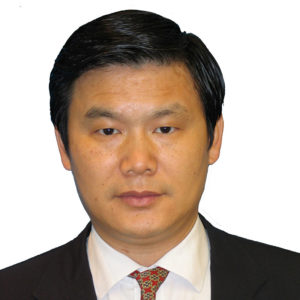In 2015, China’s anti-corruption drive reached China’s business class. Many executives were taken unannounced, what the media and their staff described as shilian 失联, ‘losing contact’. A number of top Chinese executive from both private and state-owned enterprises ‘lost contact’, taken abruptly to ‘assist in investigations’, leaving empty boardrooms and panic-stricken investors. Some reappeared after a period of time as if nothing ever happened; others faced corruption charges; still others remain missing in action.
Many disappearances were the work of the Central Commission for Discipline Inspection (CCDI), the secretive and ruthless body charged with carrying out President Xi Jinping’s anticorruption drive. However, since many disappearances in 2015 occurred without public notice or explanation, the connection between many disappeared businessmen and the CCDI’s anti-corruption efforts are often tenuous and unclear. Often, the businessmen are just disposable pawns, brought in suddenly for interrogations; authorities looking to build a case against a political patron or high-up Party members often target the businessmen they support. Soon after Fosun Group’s chairman Guo Guangchang 郭广昌 ‘lost contact’, another prominent business executive, Feng Lun 冯仑 of Vantone Holdings 万通, wrote on his blog: ‘A private tycoon once said, “In the eyes of a government official, we are nothing but cockroaches. If he wants to kill you, he kills you. If he wants to let you live, he lets you live.” ’
Mao Xiaofeng 毛晓峰—president of Minsheng Bank 中国民生银行
In late January, the CCDI detained Mao Xiaofeng, the youngest president of a publically listed Chinese bank, in relation to the ongoing investigation of Ling Jihua 令计划, a former high-ranking official, for corruption. Mao resigned from his post a few days later, citing personal reasons. Mao had served in the Community Youth League prior to joining Minsheng. Chinese media reported that he had close ties to Ling Jihua’s wife as well as the wife of another official under investigation, Su Rong 苏荣.
Lei Jie 雷杰—chairman of Founder Securities 方正证券
In late January, Founder Securities announced that it had lost contact with its chairman Lei Jie, who had asked for sick leave through relatives. Founder Securities is a joint venture between Swiss Credit Suisse Group AG and state-owned Founders Group. In light of Lei’s continued absence, the board of Founder Security appointed a replacement CEO in February. In November, international media reported that Lei Jie had been released by authorities. Lei was not reappointed as CEO and his current relationship to Founder Security is unknown.
Wang Yaoting 王耀庭—vice president of Hua Xia Bank华夏银行
On 4 May, state-owned Hua Xia Bank announced that its deputy chief Wang Yaoting was under investigation for ‘violating discipline’. Media reports at the time pointed to Wang’s role in the restructuring of Shanxi Liansheng Energy 陕西联盛能源. Another Chinese media outlet re-ported that the investigations were in fact related to Wang’s outsourcing of IT support for Hua Xia’s online banking operations. Wang’s current whereabouts and the status of his case are unclear.
Guo Guangchang 郭广昌—chairman of Fosun Group 复星集团
The disappearance in December of Guo Guangchang, the CEO of Fosun Group and China’s seventeenth richest man, often referred to as ‘China’s Warren Buffet’, was especially shocking given his status as one of China’s most prominent business figures. Chinese media reported on 10 December that Fosun executives had ‘lost contact’ with their CEO. The same day the company said Guo was ‘assisting in an investigation’ and suspended trading of its shares on the Hong Kong Stock Exchange. After four days, Guo resurfaced without explanation. One day later, he was spotted dining at a restaurant in New York. Fosun’s stock dropped ten percent once trading resumed.
Li Yifei 李亦非—chairman of Man Group’s China unit
At the time of the 2015 stock market crash, news circulated that Li Yifei, the Chinese head of the international hedge fund Man Group, had been taken into custody. A week later she wrote on social media that she had gone on holiday to ‘meditate’. A subsequent comment by her husband indicated that she had been meeting with authorities.
Cheng Boming 程博明, Chen Jun 陈军, and Yan Jianlin 闫建霖—CITIC Securities 中信证券
In mid-September, officials launched a probe into Cheng Boming, the president of China’s biggest brokerage firm CITIC Securities, for financial wrongdoings in connection to that summer’s stock market crash. While the specific nature of the probe remains unclear, Cheng’s detention came weeks after a report on Xinhua implicated high-level executives at CITIC Securities in inflaming stock market turbulence earlier that summer through insider trading and short selling. The allegations led to a series of executive departures. On
6 December, CITIC said it had ‘lost contact’ with two senior executives, Chen Jun and Yan Jianlin. The status of the cases against Cheng and other CITIC executives is unclear, though they were removed from their positions at CITIC.
Zhao Dajian 赵大建—honorary chairman, Minzu Securities 民族证券
Founder Group was struck again by investigators when director of Founder Securities Zhao Dajian, who served simultaneously as the chief executive of Minzu Securities, was detained at the end of September. Founder Securities reported that they had lost contact with their director on 22 September. The reason for his detention remains unclear, though state media reported that an official probe had been launched into the embezzlement of two billion yuan by Minzu executives.
Chen Hongqiao 陈鸿桥—president of Guosen Securities 国信证券
Chen Hongqiao, the president of state-owned Guosen Securities, was found dead from an apparent suicide in his Shenzhen house on 22 October. His death came little over a month after the CCDI announced that his former boss Zhang Yujun 张育军, the former assistant chairman of the China Securities Regulatory Commission 中国证监会, had been put under investigation for ‘severe violation of discipline’. Chen had served as a deputy general manager of the Shenzhen Stock Exchange before joining Guosen Securities in 2014.
Xu Xiang 徐翔—general manager Zexi Investment 泽熙投资
Nicknamed ‘Hedge Fund Brother No. 1’, the head of the wildly successful hedge fund Zexi Investment, Xu Xiang, was arrested in November on the G15 Expressway over the Hangzhou Bay Bridge. Authorities stopped Xu’s car and arrested him for insider trading and stock manipulation. The preternaturally good performance of Xu’s hedge fund, which yielded on average 249 percent annual returns had led to suspicion that Xu was engaging in insider trading or had powerful political connections which helped him manipulate stocks for gain, a relationship of convenience that ultimately went awry. In April 2016, Xu was formally charged with ‘stock market manipulation and insider trading’, according to Xinhua.
Yim Fung 阎峰—chairman of Guotai Junan International 國泰君安國際
Shares of Hong Kong-listed Guotai Junan International dropped seventeen percent in mid-November after the brokerage firm announced it could not reach its chairman Yim Fung. Yim surfaced more than a month later after ‘assisting in certain investigations’ in the Mainland and resumed work. The Guotai Junan’s stock rallied in the wake of Yim’s return, though the company’s share price did not fully recover from the blow of Yim’s lengthy disappearance.


